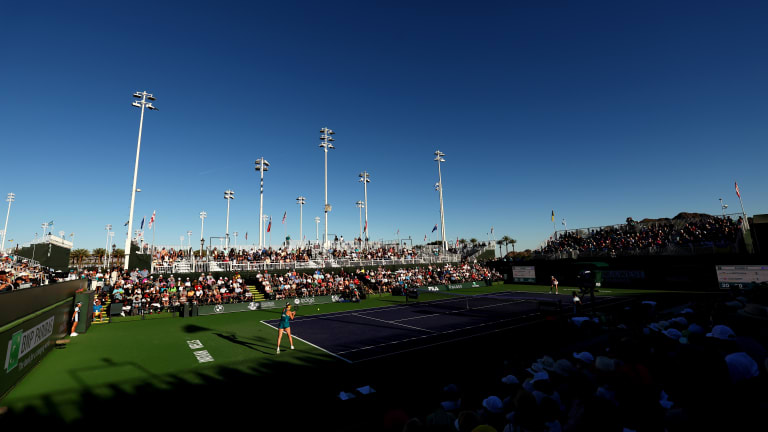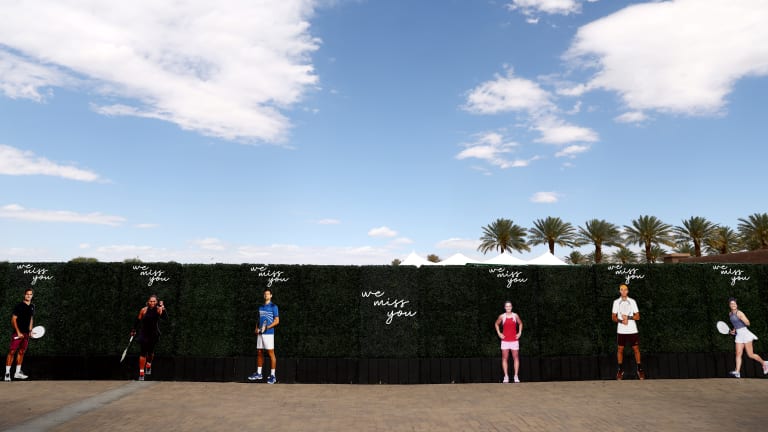Indian Wells, USA
How pro tennis looks two years after the pandemic started
By Mar 14, 2022Indian Wells, USA
Mackenzie McDonald is paying the college tennis experience forward with a new fund
By Mar 17, 2025Indian Wells, USA
Mirra Andreeva and Jack Draper win breakthrough titles at Indian Wells: What did we just witness?
By Mar 17, 2025Indian Wells, USA
Jack Draper's run through Indian Wells concludes with his first ATP Masters 1000 title
By Mar 16, 2025Indian Wells, USA
Holger Rune vs. Jack Draper: Where to Watch, Indian Wells Preview, Betting Odds
By Mar 16, 2025Indian Wells, USA
Holger Rune reaches first Indian Wells final over Daniil Medvedev
By Mar 15, 2025Indian Wells, USA
Mirra Andreeva vs. Aryna Sabalenka: Where to Watch, Indian Wells Preview, Betting Odds
By Mar 15, 2025Indian Wells, USA
Mirra Andreeva, 17, advances to Indian Wells final, beating Iga Swiatek in chilly conditions
By Mar 15, 2025Indian Wells, USA
Ruthless Aryna Sabalenka storms past Madison Keys, 6-0, 6-1, in semifinals of Indian Wells
By Mar 15, 2025Indian Wells, USA
Carlos Alcaraz vs. Jack Draper: Where to Watch, Indian Wells Preview, Betting Odds
By Mar 15, 2025How pro tennis looks two years after the pandemic started
Two years ago this month, Indian Wells was the spot where the tennis world first faced the COVID-19 pandemic.
Published Mar 14, 2022
Advertising
Advertising

The tournament has returned to its traditional spot in March, with far more fans back on site for days and nights of spectating, eating, shopping.
© Getty Images
Advertising

As the sport whose players trek into more countries than any other athletes, tennis is likely to deeply, and perhaps even permanently, feel the pandemic’s shock waves.
© Getty Images
Advertising
Advertising

Download the Tennis.com app on your IOS or Android device today!